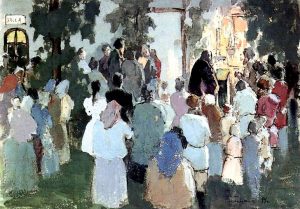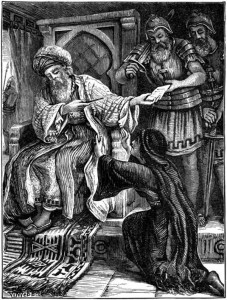Genesis 24:34-38, 42-49, 58-67
This text is used for the Lectionary Year A on July 9, 2017.
 How do we hear from God? I grew up hearing people say that God spoke to them or God showed them what to do. This is often one of the ways Christians make others feel inferior. We talk in lofty terms when we speak of the divine guidance from God. Does he speak audibly? How does he reveal his will in your life? Our text for today is a beautiful picture of a servant looking for God’s hand and his guidance.
How do we hear from God? I grew up hearing people say that God spoke to them or God showed them what to do. This is often one of the ways Christians make others feel inferior. We talk in lofty terms when we speak of the divine guidance from God. Does he speak audibly? How does he reveal his will in your life? Our text for today is a beautiful picture of a servant looking for God’s hand and his guidance.
This story is about obedience, faith, prayer, God’s activity and work, and a response of worship. Abraham and Sarah had lived long faithful lives. They both received a promise from God and new names to remind them of that promise. They were given a son in their old age, a son for whom they had longed for many years. The covenant God made with Abraham promised (Genesis 15:14-21) that he would give him a son through his own body. God promised he would make his offspring as numerous as the stars. He made a covenant with Abraham (Genesis 15:14-16) that his descendants would live as strangers in this country and they would be enslaved and mistreated for 400 years. God promised he would punish the nation that oppressed them. God promised Abraham that he would be buried at a good old age. Finally, he promised that in the fourth generation his descendants would come back to this land.



